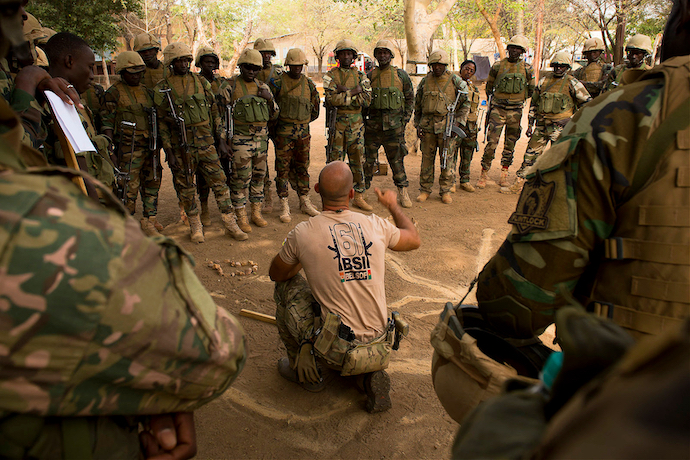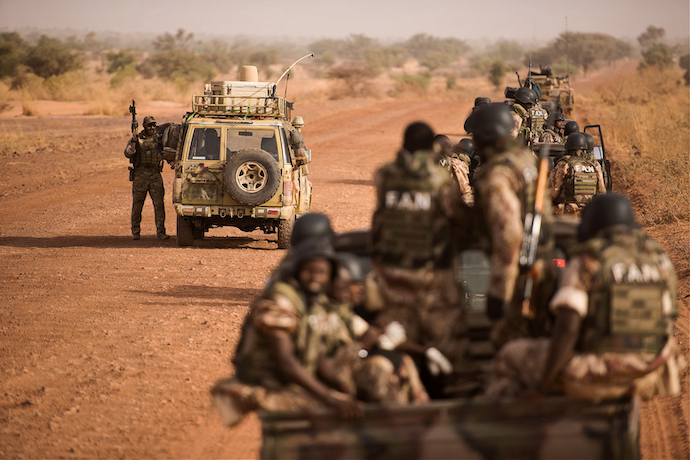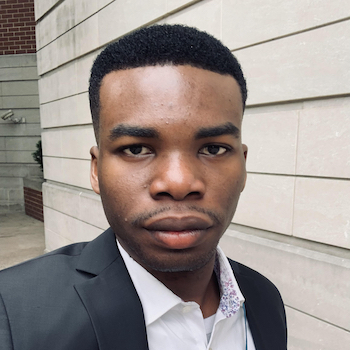
Killing Arms Sale to Nigeria Would be a Colossal Mistake.
A bipartisan attempt is underway in Washington to stop a billion-dollar arms sale to Nigeria following a Reuters report linking the Nigerian military to an illegal abortion program that terminated thousands of pregnancies since 2013.
Although the Biden administration had approved the sale in 2022, Democratic and Republican Reps. Sara Jacobs and Chris Smith have called on the president to rescind the sale under the Leahy amendment which prohibits military assistance to any foreign government that has been credibly accused of gross human rights violations. The U.S. lawmakers said that Nigerian security forces “appear to have a limited understanding of humanitarian law,” and “we believe continuing to move forward with the nearly $1 billion arms sale would be highly inappropriate and we urge the administration to rescind it.”
While there are, of course, moral grounds for such a decision, rescinding the sale would be detrimental to the region’s stability, further undermining America’s credibility in Africa. More importantly, halting the sale would be contrary to the Leahy amendment because the purpose of the law is not to restrict security assistance to defiant foreign security forces, but to ensure security assistance is given to accountable nations.

The text of the Leahy amendment reads: “No assistance shall be furnished under this chapter or the Arms Export Control Act to any unit of the security forces of a foreign country if the Secretary of State has credible information that such unit has committed a gross violation of human rights. The prohibition in subsection shall not apply if the Secretary determines and reports to the appropriate congressional committees that the government of such country is taking effective steps to bring the responsible members of the security forces unit to justice.”
It is a legal axiom that the meaning of a statutory provision can be inferred from the exceptions that are made to it. For example, as provided above, whether such a ban “shall” apply or not would depend on the “effective steps” a foreign government is taking to ensure accountability and dispensation of retributive justice to human rights violators. In complying with the above provisions, Nigeria’s Human Rights Commission initiated a panel to investigate the allegations as well as other alleged human rights violations committed by the military.
The panel was initiated after General Lucky Irabor, the head of Nigeria’s military, demanded an “independent investigation” into the Reuters report. Previously, he had denounced the report and said there would be no investigation into the alleged abortion program. According to Tony Ojukwu, the Executive Secretary of Nigeria’s Human Rights Commission, the panel would focus on investigating the Reuters report and “make appropriate determinations as to the culpability of individuals or institutions as may be deemed necessary.”
The panel includes a retired supreme court justice, lawyers, women’s rights advocates, and medical professionals. Although the Human Rights Commission does not prosecute human rights violators, the commission has awarded payments to former victims of abuse and recommended disciplinary actions for human rights violators.
The panel began its investigation by visiting an infamous military hospital where Lt. Col. Adeniyi Ogunsanya, the head of the facility, was questioned on the facility’s role in the program. However, he dismissed the allegations in the report as “mere claims that can be made by anybody which has no foundation.” In addition, Major General Ibrahim Yusuf, a former division head within the army, and another medical doctor were questioned as well.

Nigeria’s military is ensuring accountability by providing investigators with unlimited access to military facilities and personnel. These were the same recommendations made by UN Secretary-General António Guterres.
Therefore, it seems premature for U.S. lawmakers to call for suspending the sale before the official inquiry is wrapped up. These lawmakers must understand that the purpose of the investigation is to establish the relevant facts to prove or disprove the allegations and to recommend necessary disciplinary action.
When the Biden administration approved the sale last year, the U.S. State Department explained at the time: “The proposed sale will support the foreign policy goals and national security objectives of the United States by improving the security of a strategic partner in sub-Saharan Africa.” Consequently, it would be counterproductive to weaken the abilities of Nigeria’s military, especially at a time when it is conducting joint counterterrorism exercises with the U.S. military. For more than a decade, the Nigerian military has been at the forefront of counterinsurgency operations in the Sahel, an area ravaged by numerous jihadi groups and armed conflicts.
Suggesting Nigeria’s military doesn’t have a “proper understanding of humanitarian law” is misguided. The government has launched a number of initiatives that run counter to the narrative being pushed by some. One such program is Operation Safe Corridor (OSC), an initiative designed to rehabilitate and reintegrate former Boko Haram fighters back into society. Nigeria has also treated former fighters and their families “humanely” through the OSC program, in which they are properly sheltered and fed in camps, and given the necessary tools to deradicalize, and rehabilitate.
Killing the arms sale would give credence to accusations of hypocrisy by those outside Western capitals. Whether it is continued military assistance to Israel which has been credibly accused of human rights violations, or America’s continued operation of the Guantánamo Bay prison facility, no country has its hands clean when it comes to human rights.
Halting security assistance to the largest democracy in Africa would create a huge vacuum to be exploited by other foreign powers like China, which the United States and others are trying to prevent. America should realize that Nigeria, as a strategic partner, is one of the few “regional powers” in Africa that swept Russian influence under the rug while voting to condemn Russia’s annexation of Ukrainian territories at the UN General Assembly.
The United States recently jumpstarted a faltering relationship with African countries by hosting a U.S.-Africa summit last year, where Washington pledged to engage with African nations more consistently and sustainably. As Nigeria will have a newly elected president in the coming days, it would be more expedient for Washington to support the incoming administration that, if the allegations are true, will ensure that there is accountability and justice for the victims. Therefore, Washington should not make the colossal mistake of diplomatic retrogression because a slight miscalculation in dealing with Nigeria would be extremely prejudicial to U.S. foreign policy and U.S. strategy toward sub-Saharan Africa.

